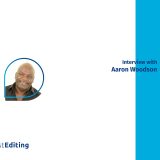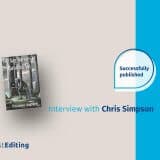
It may be appropriate to use sexist (or gender-specific) language in a novel. But there are very few times when you can or should appropriately identify a character, individual, or subject using only a masculine form of the word. And using a combination (him/her) is cumbersome.
In educational writing (course assignments or research papers), journalism, and in business, sexism in the use of language is discrimination. Style manuals, office policies and procedures, and employee handbooks are excellent resources for using gender-neutral language. Not being gender-neutral can be a costly mistake. I know a manager who tosses resumes and job application letters into the “Do Not Interview” pile when she spies sexist uses of language. It does not make a good impression in these gender-neutral times.
Use of sexist language most often occurs with third-person masculine pronouns (he, him, his, himself) or with job titles that include a gender preference (fireman, chairman, foreman) (Andersen, R. 1994). Words such as stewardess, waiter or waitress, and actor or actress have been generally changed to a gender-neutral format: flight attendant, server, and actor.
There are also sexist words that are not job titles but relate to a group of people. Mankind, the average man, manned, and all men. In exchange, terms such as people, ordinary person, staffed, and all people should be used. In technical writing, “ensure that the reception desk is manned 24 hours” should be replaced with “…staffed 24 hours.”
Tips to Avoid Sexist Language
What are some options for ensuring that your writing is gender-neutral? First, adopt the titles that are in use today:
- Letter carrier
- Chairperson or Chair
- Spokesperson
- Flight Attendant
- Police Officer
- Server
- Firefighter
- Host (no Hostesses)
- Journalist, Writer
- Actor (no Actresses)
- Sportsperson
- And don’t use male nurses to distinguish from nurses (female)
Most businesses and workplaces now use administrative assistant rather than secretary as a position title.
If you are using female and male wording together, make sure they have equal treatment. Examples include:
Ladies and gentlemen, or men and women
but not: Men and Ladies
Husband and wife
but not: man and wife (Yes, change the wedding vows.)
John and Mary Doe, or John Doe and Mary Jones
but not: John Doe and his wife, Mary
If using a sentence where the subject can be he or she or him or her, try to find another way to write the sentence without using him/her or he/she. For example, the sentence:
Before giving a patient medications, make sure that you verify his/her name by checking their identification bracelet.
Change the wording to:
Before giving a patient medication, make sure to verify their name by checking the identification bracelet.
Or even better:
Check the patient’s identification bracelet to ensure that it matches the name on the prescription before administering medications.
Another example; do not use he to mean both men and women:
A researcher should submit his proposal by December 15. Or,
Each physician must provide his patient reports within 24 hours.
Better would be:
The proposal deadline for researchers is December 15.
Each physician must file patient reports within 24 hours.
Additional Tips
Watch the use of the language in public relations materials, advertisements, or job applications, and in your speech. It is very easy to alienate new customers, clients, or potential employees by using sexist language. Sexist language in your business writing (e.g., memos, emails, articles, technical writing) is not professional and may at times be illegal, violate human resources policies and procedures, and/or not meet style guidelines. So, in editing your materials, ensure that you use gender-neutral language at all times.
An excellent example that illustrates that man or he cannot stand for both men and women is this sentence (Andersen, 1994):
“Modern man no longer pampers himself during pregnancy. He works almost up until the day of delivery and is back at work within a few weeks of leaving the hospital.”
Reference:
Andersen, R. (1994). Powerful Writing Skills. National Press Publications, a division of Rockhurst College Continuing Education Center, Inc.
Originally posted 4/8/2009 and happily updated 11/14/2017. Thanks for reading!










